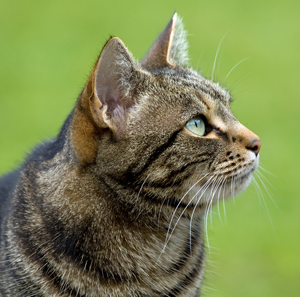|
 Unsocialized Stray Cats, They are living outside in parks or in alleys, perhaps even in your neighborhood. They are cats who live outside without direct human contact. Some have been abandoned to fend for themselves; some of them were born outside. Unsocialized Stray Cats, They are living outside in parks or in alleys, perhaps even in your neighborhood. They are cats who live outside without direct human contact. Some have been abandoned to fend for themselves; some of them were born outside.
The Freeborn County Humane Society believes we can improve the lives of these cats and benefit the towns and communities they exist in through our Unsocialized Stray Cat Initiative Program by using the TNR method.
What is TNR?
Trap, Neuter and Return (TNR) is widely recognized as an effective and humane way for managing and reducing unsocialized and stray cat populations. TNR involves humanely trapping these cats and transporting them to a clinic setting where they are spayed or neutered and have their ear-tipped. They may also receive a health check, vaccinations, and may be treated for minor medical conditions. After surgery, the cat is returned back to his colony and habitat – typically where caring individuals are providing food, water and a form of shelter. Since the cats are no longer reproducing, the colony will gradually diminish in size. By reducing or eliminating mating, fighting and wandering, TNR makes the colony more stable, impacts the influx of newcomers, and improves the health of the cats and their environment. Performed on a large scale, the successes of these programs can be felt at animal shelters and animal control facilities where fewer cats are admitted.
Ear-tipping
Ear-tipping is a technique of removing the top corner of the cat’s left ear. This is done while the cat is under anesthesia for its spay/neuter, so there is no pain. The “tipped” ear is the universal symbol that a cat has been through a spay/neuter program, vaccinated, and sterilized – and generally part of a managed unsocialized and stray cat colony. This makes it possible for caretakers to differentiate between cats that have already been sterilized and ones that have not been sterilized yet. Ear-tipping also ensures that a cat will not undergo unnecessary repeat surgery if they are live-trapped again.
Qualifying Cats
This program WILL accept:
- Ferel cats / Neighborhood cats
- Barn cats
- Stray cats
The Goal of this program is to sterilize as many cats as possible, eventually reducing the number of cats that must live as unowned strays. Diverting resources from this goal will result in fewer cats spayed and neutered, and more kittens born into this difficult life. Since FeLV is primarily spread from infected mother cats to their kittens, FIV passes mainly among fighting tom cats through bite wounds, spaying and neutering alone will decrease the spread of these infections. Each female cat can have 3 litters per year, and the average litter size is 4 kittens.
Contact Information Please feel free to contact Dee Amberg, Unsocialized Stray Cat Initiative Program Director at 507.383.0683 or by email
This e-mail address is being protected from spambots. You need JavaScript enabled to view it
.
Cost Involved
There is a $20 per/cat fee charged (Vaccinations are included in this fee). Payment is required upon completion of service and can be left at the Blooming Prairie Vet Clinic, checks should be made out to U.S.C.I. program. We are willing to work out a payment plan if you have a large number of cats and find it hard to cover the costs upfront.
Unsocialized Stray Cat application (pdf) Mail to: HSFC Feral Cat Program, P.O. Box 423, Albert Lea, MN 56007.
|